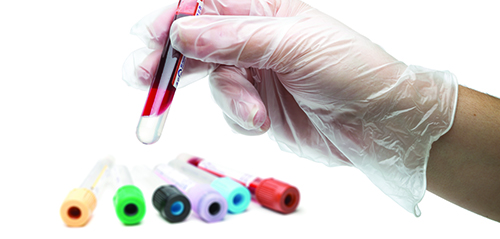There are a number of screening tests for prostate cancer, and your doctor or other healthcare provider may do one or more of the tests, depending on your particular situation. The results of the screening tests can help your doctor decide if a biopsy should be recommended.
Digital rectal exam (DRE)
Most often, this test is done during an annual physical. The doctor inserts a lubricated, gloved finger into your rectum, to check for hard or lumpy areas in the prostate.
PSA blood test
The prostate specific antigen (PSA) test may also be done during an annual physical, along with the DRE, and it remains the starting place for prostate cancer screening. The test checks for the level of PSA in the blood, since that may rise in men who have prostate cancer. However, PSA can also rise due to other problems that aren’t cancer. An elevated PSA doesn’t necessarily mean a man has prostate cancer … and a low PSA doesn’t guarantee he doesn’t. In some cases, a rising PSA year to year may indicate cancer. The results of a PSA test can help a doctor decide whether to run additional tests to check for cancer.
PCA3 urine test
This molecular diagnostic test detects RNA from the prostate cancer gene 3 (PCA3), which is secreted in high quantities by prostate cancer cells. The test can help differentiate prostate cancer from other causes of an elevated PSA.
4Kscore blood test
This test gives a percentage score of how likely a man, who has an elevated PSA, is to have an aggressive prostate cancer. The results can help the patient and his doctor decide whether or not to do a biopsy depending on the likelihood of a high-risk or low-risk malignancy.
The Genitourinary Oncology Management Team at Stony Brook Cancer Center can answer all of your questions about screening tests for prostate cancer. Call (631) 638-1000.


